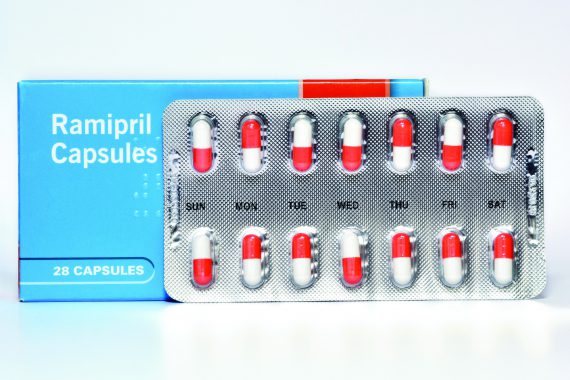Journal digest – clinical studies to know about in April

‘Write longer scripts for chronic illness’
Limiting prescriptions to just 28 days is not based on ‘sound’ evidence and length could be increased for stable conditions.
A study, published in the BJGP, said medication adherence could improve if longer prescriptions were given.
The research team conducted a literature search covering 13 studies carried out between 1993 and 2015.
All papers were randomised controlled or observational studies comparing longer-duration and 28-day prescriptions for conditions such as hypertension, diabetes and depression.
Nine of the studies suggested longer-duration prescriptions were associated with better adherence.
The paper said: ‘Studies do suggest adherence may improve with longer prescriptions. UK recommendations for shorter prescriptions are not substantiated by the current evidence base.’
Lead author Dr Sarah King, research fellow at RAND Europe, said: ‘Given our study results, CCGs and local NHS may wish to reconsider current recommendations for 28-day prescription lengths for patients with stable chronic conditions.’
BJGP 2018, online 12 March
Aspirin ‘effective’ for postoperative VTE
Aspirin is a cheap and safe alternative to oral anticoagulants for treating venous thromboembolism, after hip and knee replacements, new research has found.
The study included more than 3,000 patients who had had hip or knee surgery and received once-daily oral rivaroxaban for the first five days after surgery, and were then randomly assigned to continue rivaroxaban or switch to aspirin.
The researchers found VTE occurred in 0.64% of the aspirin group and 0.70% of the rivaroxaban group, and concluded ‘extended prophylaxis with aspirin was not significantly different’.
Study author and Dalhousie University faculty of medicine dean Professor David Anderson said: ‘Aspirin would be attractive for this indication because of its low cost, ease of use, and low rates of side-effects.
‘Aspirin is an effective and safe alternative to oral anticoagulants for extended prophylaxis, following total hip or knee arthroplasty, in patients who receive a short course of oral anticoagulants following surgery.’
N Engl J Med 2018;378:699-707
Routine PSA screen ‘does not save lives’
GPs should not routinely offer PSA testing to men without symptoms, as it does not save lives, a study of more than 400,000 men has found.
The research compared the outcome of men from 570 GP practices across the UK who received a one-off PSA test with those who had not been screened.
At 10-year follow-up, researchers found that, among the 549 men in the intervention group who died of prostate cancer, 34% had attended the PSA screening clinic, but in the majority of cases the ‘lethal cancer’ had not been picked up by the test.
The RCGP commented that it ‘does not recommend that the PSA test is offered routinely to men who do not present with prostate cancer symptoms’.
RCGP chair Professor Helen Stokes-Lampard said: ‘This large, high-quality study is really useful in backing up our calls for GPs to have better access to a more specific and sensitive test. It is now important that this research is taken into account as new research is commissioned and new clinical guidelines are developed.’
JAMA 2018;319:883-895
Self-monitoring ‘leads to lower BP’
Titrating blood pressure medications using self-taken blood pressure readings leads to significantly lower blood pressure with no increased workload for the GP, a study has found.
Just under 1,200 patients were assigned either to usual care, with their GP adjusting their medication based on clinic blood pressure readings, or self-monitoring with or without telemonitoring, where their GP titrated their medication using readings taken by the patient at home and either posted in or sent to the GP via SMS.
Patients in the intervention groups had significantly lower systolic blood pressure after 12 months than those who received usual care, at 137 and 136mmHg in the self-monitoring and telemonitoring groups respectively, compared with 140mmHg in the usual care group.
Lead author Professor Richard McManus, an Oxfordshire GP and NIHR professor of primary care at the University of Oxford, described the findings as ‘conclusive evidence’ that GPs can use self-taken readings to help patients achieve lower blood pressure.
He said: ‘This reduction in blood pressure comes with no additional workload for the GP, and the self-monitoring system is cheap and simple for patients to use.’
Lancet 2018;391:949–959
Boosting steroids ‘cuts severe asthma attacks’
Quadrupling the dose of inhaled steroids temporarily when asthma control begins to deteriorate could reduce the risk of a severe asthma attack.
A trial including nearly 2,000 adults and adolescents receiving inhaled glucocorticoids found an actual risk reduction of 19% in patients whose self-management plan included quadrupling their dose of inhaled steroids during an exacerbation. The researchers said this reduction was significant.
They noted that there was a higher frequency of treatment-related adverse effects in the quadrupling group, such as oral candidiasis, but saw no significant between-group difference in the incidence of pneumonia.
Asthma UK director of research and policy Dr Samantha Walker, who co-authored the paper, said: ‘This study showed that increasing the steroids in someone’s preventer inhaler could prevent them having severe asthma attacks and needing to go to hospital.
‘We’d urge any healthcare professionals who want to increase their patient’s asthma medication to fully explain what it means, let them know about potential side-effects and include it in their written asthma action plan.’
N Engl J Med 2018;378:902-910
Pulse July survey
Take our July 2025 survey to potentially win £1.000 worth of tokens

Visit Pulse Reference for details on 140 symptoms, including easily searchable symptoms and categories, offering you a free platform to check symptoms and receive potential diagnoses during consultations.










